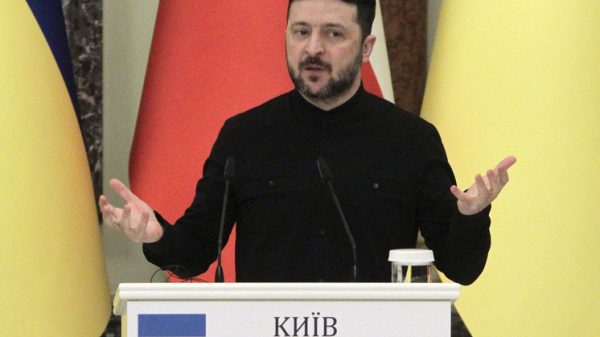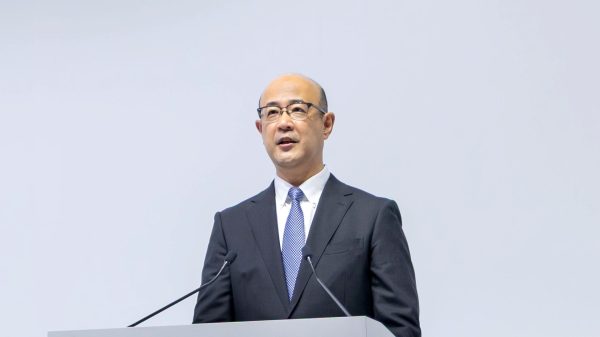 Mickey Rooney with his first wife Ava Gardner, 1942. Photo: Getty
Mickey Rooney with his first wife Ava Gardner, 1942. Photo: Getty
Hollywood, 1942. Mickey Rooney was the biggest star in the world. world. He was the most successful performer at the global box office for three years in a row. He won the Special Child Star Oscar and was also nominated for the Best Adult Actor Oscar. Laurence Olivier called him «the greatest actor of all.» And he was going to marry Ava Gardner.
Milton Keynes, 2009. Sixty-seven years and eight marriages later, cash-strapped Mickey Rooney appeared in panto with Bobby Davro and Celebrity Big Brother finalist Ben Adams. His turbulent past to date has included addiction, numerous bankruptcies and the tragic murder of his fifth wife by her former lover.
His career choice became increasingly strange and he was abused by his stepson, who was accused of withholding food and medicine from Rooney while using the elderly star's money to finance his flamboyant life.
There are no modern stars quite like Mickey Rooney, who died 10 years ago this week. Standing just five feet two inches tall, Rooney could act, sing, dance, play the piano (and write a respectable symphony), convince in both farce and Shakespeare, and sleep with most of Hollywood's leading women, despite appearances like he was describing himself. , “half-man, half-goblin.” And he did all this while maintaining a personal life stranger than the most outlandish fiction.
No other actor has experienced such a long decline in both the private and public spheres after such an impressive start.
 America's Golden Boy: Mickey Rooney Photo: Michael Ochs Archive
America's Golden Boy: Mickey Rooney Photo: Michael Ochs Archive
Rooney was born Joseph Yule Jr. in 1920 to parents of burlesque performers in Brooklyn. His first experience in show business came 15 months into his life, when he appeared in his parents' vaudeville act wearing a miniature tuxedo and smoking a rubber cigar.
Rooney's parents separated, and he and his mother went to Hollywood. By age six, he made his big-screen debut and was cast as comic book character Mickey McGuire, a role he played for six years in 80 films, giving him the name Mickey Rooney.
In 1935, the 15-year-old Rooney gave the best performance of his career, distinguished himself as Puck in A Midsummer Night's Dream, emphasizing the otherworldly strangeness of the role — decorating Shakespearean dialogue with strange screams and roars and giving the film a phantasmagoric spectacle. with his characteristic frenetic energy.
 Mickey Rooney, 5 years old Photo: AP
Mickey Rooney, 5 years old Photo: AP
Rooney's defining role as plucky teenager Andy Hardy seemed comparatively restrained and predictable. But he played him in 16 phenomenally popular films released between 1937 and 1958.
Andy Hardy's films made Rooney the biggest star in the world, a status he held when 19-year-old Ava Gardner arrived at MGM in 1941. Gardner recalled that she was «practically still a child» when she first met her future husband. . “I still didn’t know that he was the biggest wolf in the whole area. He was catnip to the ladies. He knew it too.
The women who succumbed to Rooney's manic charm at the height of his fame spanned the entire roster of MGM talent, from the imperious Norma Shearer, who was 20 years older than Rooney at the time of their affair, to the young Lana Turner, who nicknamed Rooney «Andy.» Hard-On.»
 'Catnip to the ladies': Ava Gardner and Mickey Rooney Authors: Jack Albin
'Catnip to the ladies': Ava Gardner and Mickey Rooney Authors: Jack Albin
Soon Gardner also liked Rooney, and the couple got married. However, their relationship was a constant power struggle, prone to huge emotional outbursts. Rooney always denied cheating, but Gardner claimed that her new husband was constantly unfaithful. To get back at him, she made fun of his diminutive height after they slept together. When Rooney drunkenly read out to Gardner a list of the names of women he had slept with, accompanied by comments about their strengths and weaknesses, her patience with him snapped and she made the bold decision to divorce America's golden man. boy.
MGM went out of its way to suppress stories of Rooney's bad behavior. Viewers weren't meant to know that in real life, Andy Hardy's slightly irreverent brashness extended to wild debauchery and drug addiction.
In fact, Rooney's drug addiction was initiated by the film studios. Like his close friend and co-star Judy Garland (the rare leading actress with whom Rooney did not sleep), Rooney was fed pills to keep him in shape during a busy filming schedule. He was then given a sleeping pill to calm him down after filming ended, followed by another round of stimulants (probably amphetamines) to fuel the next 72-hour workday. His drug addiction continued until he was seventy, when sleeping pills left him hospitalized for exhaustion.

In 1944, Rooney was drafted into the U.S. Army, where he served more than two million troops for 21 months. in the service. While serving in the Army, Rooney met his second wife, Betty Jane Phillips, but their marriage ended soon after it began. He then entered into two more marriages in less than ten years.
Rooney's career began to decline after his return from the army. He was dropped by his beloved MGM and starred in lousy film noirs for which his cheerful screen persona was particularly unsuited. In 1961, he made the worst decision of his career and played the Japanese character Mr. Yunioshi in the film Breakfast at Tiffany's. The play was criticized for its grotesque racism, but Rooney remains the role with which Rooney is most associated.
He filed for bankruptcy in 1962, financially crippled by decades of misguided investing and gambling addiction. (He once embarrassed poker-playing gangsters by losing $50,000 at the Riviera Casino in Las Vegas.) He went bankrupt again in 1996, despite earning $65,000 a week in the Eighties points. The ultimate cost of his gambling addiction is difficult to accurately estimate. But a few months before his death, he admitted: “I blew millions.”
The sixties were the most painful decade in the star's life. In 1958, he married Barbara Ann Thomason, a famous beauty queen who was 17 years his junior. Soon after their marriage, Rooney's taste for infidelity was renewed, and in response to her husband's infidelity, Barbara Ann began her own affair with dashing Serbian actor and stunt double Milos Milos.
 Brief bliss: Mickey Rooney with Barbara Ann Thomason and their newborn baby Kelly Ann Photo: Bettmann
Brief bliss: Mickey Rooney with Barbara Ann Thomason and their newborn baby Kelly Ann Photo: Bettmann
Milos's life was almost the exact opposite of Rooney's. He came from an influential family whose wealth was forcibly expropriated by the Soviet Union. Milos fought on the streets of Belgrade until chance circumstances landed him an unusual job as a bodyguard for French New Wave star Alain Delon, and from there Milos made his way to Hollywood, where he met Mickey Rooney and the actor's glamorous, middle-aged new girlfriend. wife.
Rooney discovered that Barbara Ann and Milos were having an affair when he returned home from filming in the Philippines. The couple seemed headed for divorce, but they agreed to reconcile on the condition that Barbara Ann stop dating her new lover.
On the night of January 30, 1966, Barbara Ann told Milos what she and Rooney had agreed upon, just as Rooney was admitted to the hospital for treatment of a blood disorder he had contracted abroad. The next morning, a guest at the Rooney home found Barbara Ann and Milos dead in the bathtub. She was shot in the jaw; he shot himself in the head.
 A rare leading lady he didn't sleep with: Rooney with Judy Garland in Girls on Broadway, 1941. : Kobal Collection
A rare leading lady he didn't sleep with: Rooney with Judy Garland in Girls on Broadway, 1941. : Kobal Collection
Police blamed Milos for this apparent «murder-suicide», although rumors spread that Rooney may have committed the murder in revenge. However, that night Rooney was sedated and completely oblivious to the murder of his wife. When he was told the news the next day, he was so shocked that he had to extend his stay in hospital. “I died with her,” he wrote in his autobiography.
After this tragedy, Rooney's career gradually and stutteringly revived. The predominance of critical and commercial disappointments was offset by several realized roles. These included films such as 1972's Criminology, in which he played a gangster opposite Michael Caine in a surreal clash of cinematic universes, and 1979's The Black Stallion, for which he was nominated for an Oscar, although he did not win.
However, another Oscar was just around the corner. In 1983, Bob Hope, Rooney's colleague from the golden age of Hollywood, presented him with an honorary Oscar. The crowd, including Dustin Hoffman and Richard Pryor, stood to applaud the star, whose most famous performances came before they were born.

Rooney by that time was no longer so much an artist as an energetic one. He brought a genuine connection to the world of old-time vaudeville when he starred in the musical Sugar Babies for five years and toured with his eighth and final wife, Jen Chamberlin, in a low-budget, old-fashioned variety show. Rooney began performing on stage and returned to it in his old age.
The most surprising of all the decisions of his late-period career were his many forays into British pantomime. When the Telegraph interviewed him in 2007, he was playing Baron Hardup in the Sunderland Empire production of Cinderella alongside Les Dennis and Michelle Heaton. Before the end of the decade he appeared in two more regional pantomimes.
Reviews of Rooney in panto mode noted his stilted delivery of jokes that tried to make the elderly star relevant in a foreign country and a strange century (many of them related to his football namesake Wayne). But they also noted the very tender reaction of the audience that greeted his appearance on stage. Rooney has always been a much-loved performer — even in the most random of circumstances.
 Fallen hero: Mickey Rooney in Cinderella at Milton Keynes Theater Photo: PA
Fallen hero: Mickey Rooney in Cinderella at Milton Keynes Theater Photo: PA
Public affection was especially important to Rooney in the last years of his life, when he accused his stepson Christopher Aber of subjecting him to painful and prolonged abuse. Rooney claimed he was controlled for years by Aber, who denied him access to food and medicine, confiscated his ID and awards, and stole a fortune from his earnings. Weeks after Aber was finally served with a restraining order, Rooney appeared before the U.S. Senate to testify emotionally about the humiliations he suffered and to call for increased awareness of «elder abuse.» This was his last significant moment in public.
Rooney died on April 6, 2014, leaving behind an estate worth just $18,000 and a divided family, whose disputes over the star's inheritance began almost immediately after his death.
Media coverage of Rooney's passing has focused on the decades of pain and notorious tragedies he endured. Vanity Fair called it «a true Hollywood train wreck.» But anyone who watches his films today is struck by the complete and persistent lack of suffering in his performances. Rooney has played the embodiment of Hollywood optimism for nearly a century. Perhaps Olivier was right when he said he was «the greatest actor of all.»


























































Свежие комментарии